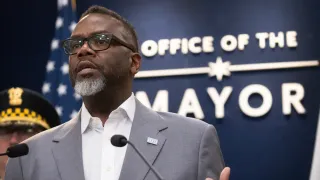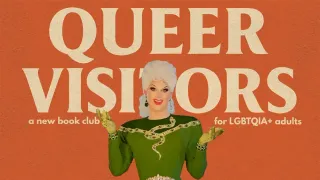
Jul 31
Germany’s Pride Flag Ban in Parliament Sparks Nationwide Backlash and Global Solidarity
READ TIME: 3 MIN.
On July 29, 2025, Germany’s parliament enacted a ban on the display of the Pride flag within its premises, a decision largely seen as a concession to growing far-right political influence in the country . The rainbow flag, internationally recognized as a symbol of LGBTQ+ pride and visibility, had previously flown during major events and commemorations at government buildings, including inside the Bundestag. According to reporting from LGBTQ Nation, the ban was justified by some parliamentarians as an effort to maintain “political neutrality” within government spaces . However, critics argue that the move was driven by an emboldened far-right bloc and reflects broader efforts to curtail minority rights and visibility .
The ban was met with a swift and vocal response from LGBTQ+ organizations, civil rights advocates, and a broad coalition of political leaders. Numerous groups condemned the decision as a step backward for LGBTQ+ inclusion and dignity in German society . German LGBTQ+ advocacy organizations such as LSVD and the Magnus Hirschfeld Foundation issued statements reaffirming the importance of visible symbols in fostering belonging and combating discrimination .
In cities across Germany, spontaneous rallies, marches, and solidarity actions erupted in protest. Hundreds gathered outside the Bundestag, waving Pride flags and chanting for equality and respect . Municipal governments in Berlin, Hamburg, and Munich responded by illuminating public buildings in rainbow colors and reaffirming their commitment to LGBTQ+ rights .
The controversy rapidly escalated beyond Germany’s borders. European Union officials condemned the ban, highlighting the EU’s Charter of Fundamental Rights and Germany’s obligations to protect minority groups . LGBTQ+ groups across Europe and North America rallied in solidarity, with social media campaigns and statements of support from organizations in France, the Netherlands, and the United States .
The move also drew criticism from prominent German politicians outside the far-right bloc, including leaders from the Social Democrats and Greens, who argued that the ban undermines Germany’s international reputation as a defender of human rights . Chancellor Olaf Scholz called for a review of the policy, stating that “symbols of inclusion and respect have no place being banned in a democracy” .
For many in Germany’s LGBTQ+ community, the ban has underscored the ongoing struggle against discrimination, even in societies with strong legal protections. Advocates point out that visible symbols like the Pride flag play a crucial role in affirming the existence and dignity of LGBTQ+ people, particularly in the face of rising hostility from far-right movements .
Community leaders have drawn parallels to recent anti-LGBTQ+ measures in other countries, warning that such bans can embolden extremists and contribute to a climate of fear and exclusion . However, activists also note that the backlash to the ban has created new opportunities for solidarity and education. Social media has seen a surge in Germans posting images of Pride flags in workplaces, schools, and homes, using hashtags like #RegenbogenFürAlle to assert visibility and resistance .
The debate has sparked renewed calls for comprehensive anti-discrimination protections and a recommitment to LGBTQ+ visibility throughout German society . Lawmakers sympathetic to LGBTQ+ rights have pledged to introduce legislation overturning the ban and safeguarding the right to display inclusive symbols in all public institutions.
As Germany prepares for upcoming national elections, the issue of LGBTQ+ rights and the meaning of symbols like the Pride flag are likely to remain at the forefront of public discourse. For many, the widespread backlash to the ban has demonstrated the resilience and unity of Germany’s LGBTQ+ communities and their allies, illustrating that attempts to suppress visibility can instead galvanize movements for equality .






